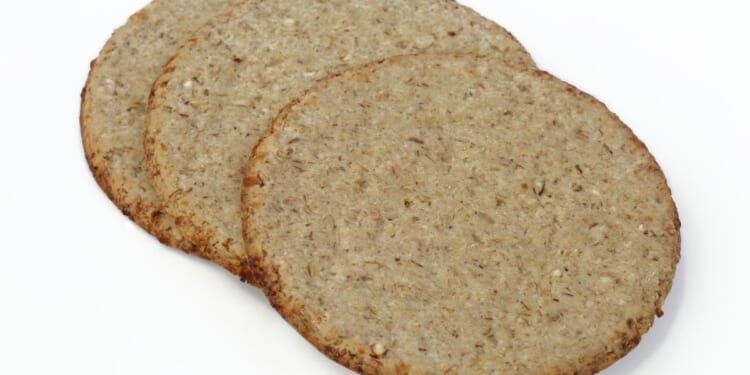Ministers are fighting to save the British oatcake as part of the Prime Minister’s reset with the European Union.
In similar scenes to the Brexit “sausage wars”, the Government is battling to get an exemption on British oats from Brussels’ strict food safety rules.
The regulations came into effect after Britain left the EU in 2020. However, it would be reinstated in the country under the Prime Minister’s plans to restore European agricultural standards.
Industry leaders have warned the Government the move could leave supermarket shelves bare of UK-grown oatcakes.
They have also argued farmers could be devastated, particularly ones that rely on the crop for their income.
The issue was raised by farming groups last year after a European Commission decision to impose restrictions on the level of mycotoxins found in products sold in the EU.
In large doses, mycotoxins can be harmful to human health.
The EU said without stricter rules, oat-derived products eaten in large quantities could be a “potential health concern”.

Oatcakes could be banned under EU regulations
|
GETTY
The regulation could discriminate against British oat farmers as mycotoxins occur more regularly in larger concentrations in damp coastal climates, such as Britain.
In warm, wet years, it could be deemed the UK oat crop would be unfit for human consumption.
Although the toxins are present at low levels in a variety of oat-based foods in the UK, a Food Standards Agency study from 2014 found they “well below the tolerable daily intake”.
The UK’s committee on toxicity responded to the EU’s move, reviewing its existing advice and finding that the UK’s existing health-based rules were adequate.

Nick Thomas-Symonds has raised the issue with his EU counterparts
|
PAEU relations Minister Nick Thomas-Symonds is in charge of negotiating the reset.
He is believed to have raised the issue with his European counterparts.
“This is something he knows needs to be fixed,” a Government source told The Times.
Britain is looking for an exemption from the EU rules, as well as several other controversial areas.
An industry figure said no deal had been reached and the EU was concerned about making concessions.
“It is hard to argue that a rule that applies in all member states should not apply over here if we have automatic access to the EU markets,” the figure said.
National Farmers Union president Tom Bradshaw urged ministers to hold firm.
“The EU’s decision to change their regulations on mycotoxins is a significant threat to British cereal farmers,” he added.
“Already, as a result of this decision, if you have a wet year then that could limit exports of cereal crops like oats to the EU, and products made with oats like oatcakes.”
Mr Bradshaw added the “real worry” came with the reset which could devastate farmers and make an entire crop “unsellable”.
“We have urged ministers to raise this with the EU as a matter of urgency,” he said.
A Cabinet Office source told the Times the EU had accepted there would ned to be a “number of areas where we need to retain our own rules”.
According to Farmers Weekly, the provisional UK oat area for the 2025 to 2026 growing season is estimated to be the largest in half a decade with a 13 per cent uplift on the previous year.
The sausage wars saw a disagreement between the UK and the EU regarding a ban on chilled meats like sausages from Great Britain, entering Northern Ireland after the Brexit transition period.

















